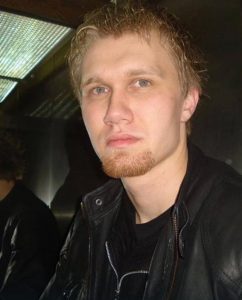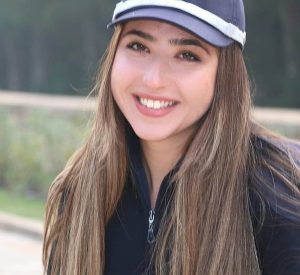The trial of an SS guard continued in Germany this week despite the pandemic with the accused in a glass box and court officials wearing masks and respecting social distancing.
Three dozen survivors and their relatives are co-plaintiffs in the case where the former SS guard is charged with being involved in 5,230 cases as an accessory to murder.
The trial against Bruno Dey, 93, who joined the SS in his teens, was delayed because of the social distancing restrictions but has now restarted this week.
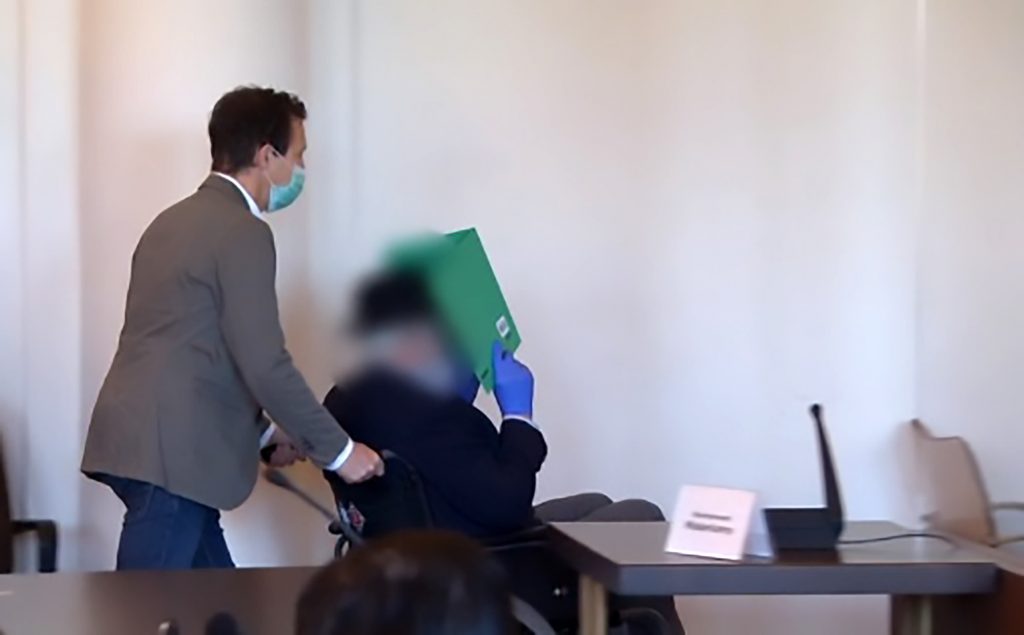
A doctor was tasked with pushing him In a wheelchair into room 300 at the court, and the accused Was then placed in a plexiglass cabin separated from his daughter and his lawyer.
The cabin was erected because he has difficulty wearing a face mask over a long period of time.
His lawyer, Stefan Waterkamp, had wanted the suspension to last longer because of the coronavirus, but the court rejected it saying that a long break was unacceptable, but did order extra precautions to protect everyone involved.
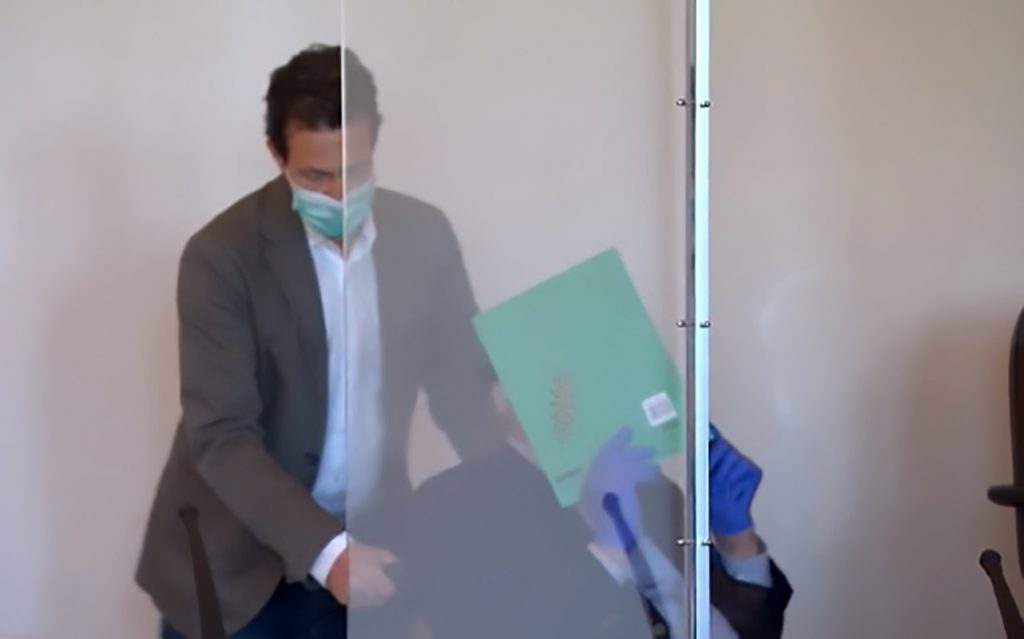
In order to keep the numbers in the room down journalists were also being kept in a separate room with sound from the trial broadcast through to them, and the seating limited to 20 seats placed apart.
Dey was collected from his home by an ambulance with doctors to take him to the juvenile court, which is responsible for the case because Dey was a teenager when the offences were carried out.
One of the detectives who originally interviewed him six times between June and August in 2018 gave evidence this week. Identified only as Thomas P. he said that the accused was cooperative when being questioned about his work as an SS guard at the so-called women’s camp at Stutthof.
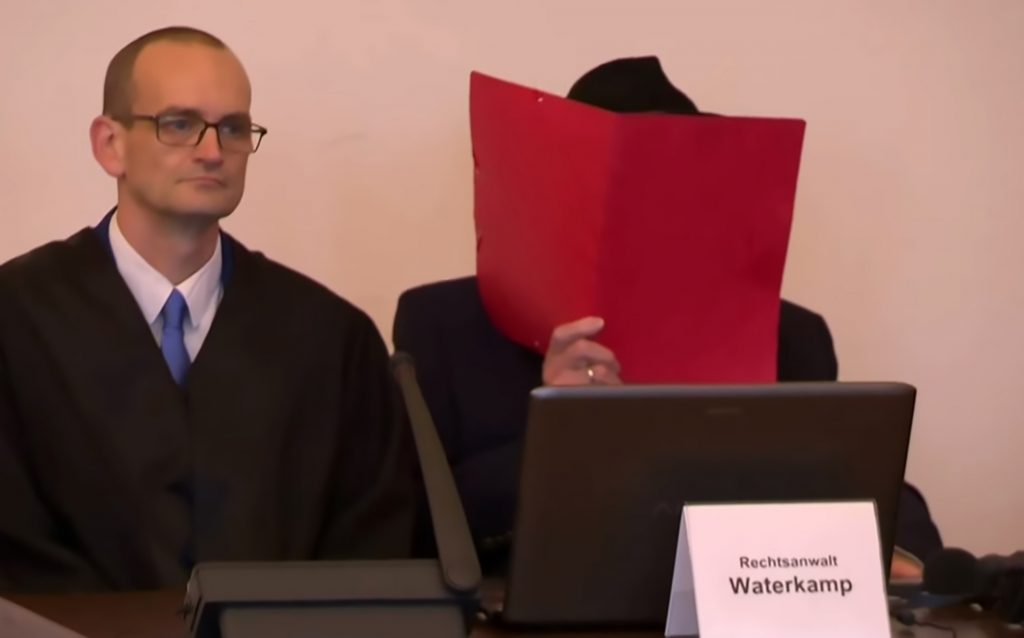
He described the meetings as a “pleasant get-together” saying that the accused turned up with his lawyer and daughter, and on occasion his wife. Initially, he had suggested that it was only political prisoners being kept in the camp.
The Nazis set up the Stutthof camp as an internment camp for more than 100,000, and it held both political opponents and Jews. At least 65,000 people were murdered, shot, hanged, gassed, and tortured to death. They froze, starved, worked their way to death and died of epidemics due to the unhygienic conditions.
Dey told the detective that he had been placed in a watchtower looking over the camp near Gdansk from August 1944 to April 1945 and his orders were to prevent prisoners from escaping.
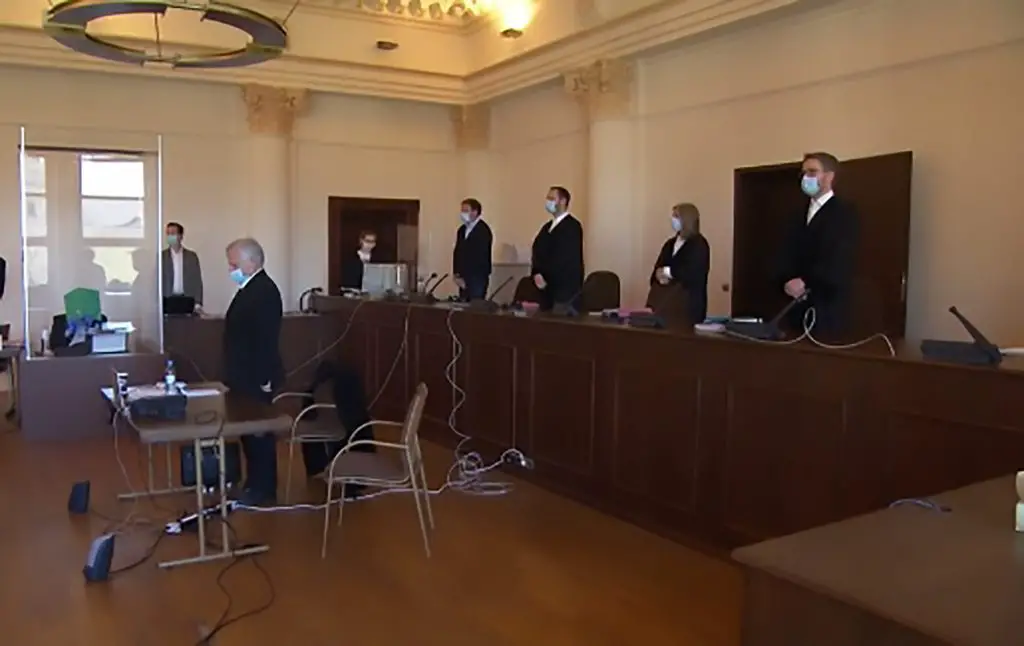
In his statements, he admitted that he was armed in his position on the watchtower, although he said he never fired a shot. He was unclear on details of his move from the Wehrmacht into the SS, and had no recollection of signing a document that was proof he had been provided with an SS uniform.
He had however pointed out that the signature had a typing error indicating it was not genuine.
He said that from his watch tower he had a view of the so-called women’s camp and could see the female prisoners as they attended roll call. He also admitted to having seen dead and emaciated people every day, and hearing screams of death although it was unclear where they were coming from.
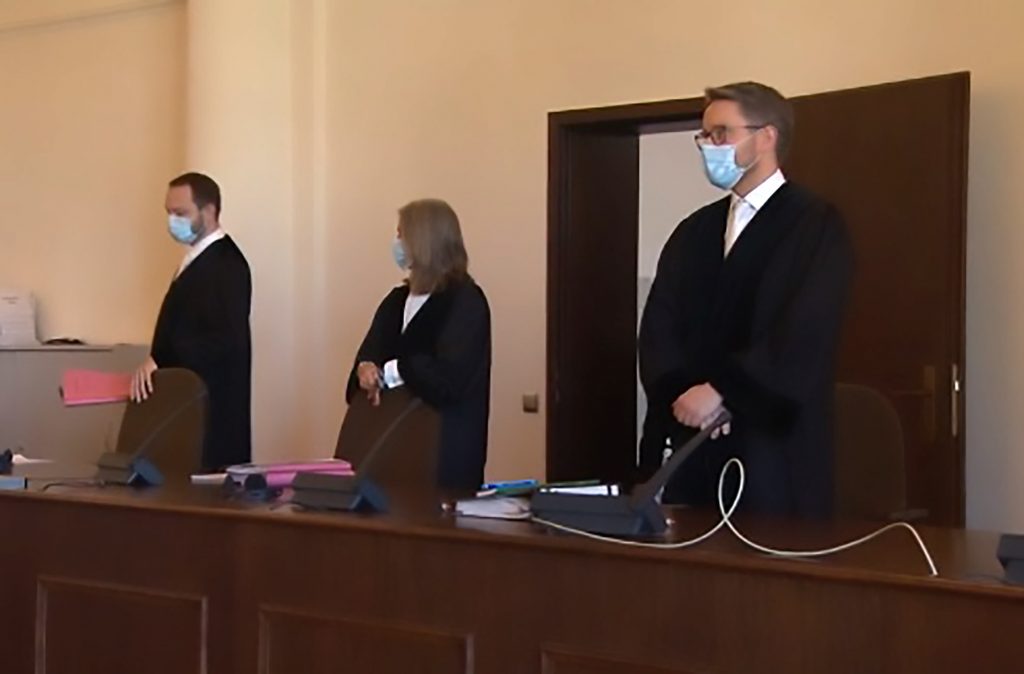
He told the interviewer that in the watchtower: “I saw a lot of deaths every day.” He described how the detainees carried corpses from the barracks, undressed them, threw them in a heap, and later they were picked up. Despite telling the detective he felt sorry for the people, they noted that the background of what was happening had not seemed to really interest him.
He said it was entirely plausible that one of the watchtowers where he might have been stationed was near to the crematorium and gas chamber and also admitted that there had been talk of “extermination of the Jews” among the guards. He also heard that the railway wagons were being sealed and turned into gas chambers but that was only through what he was told.
According to statements read out in court he claimed: “There was talk of that. But I don’t know how, where, what.”
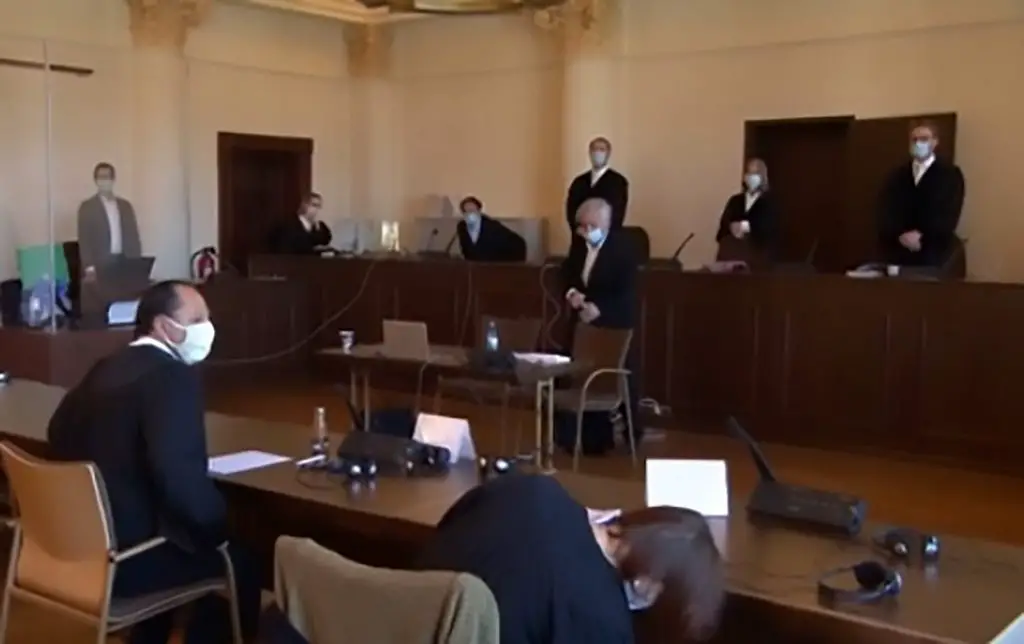
He provided no details of the condition of the dead which if they had been poisoned by Zyklon B would have been left with pink skin, green spots, blood in the ears and foam in the mouth. The investigator told the court “he never questioned it.”
The detective added that he did not have the feeling that the accused was holding anything back when answering the questions. He said that from the interview it appeared that Day had noticed what was going on in the camp, but never raised any questions about it.
The trial started in October last year and because he was only 17 or 18 years old at the time, it is being tried in a juvenile court.
The ViralTab page is created by and dedicated to professional, independent freelance journalists. It is a place for us to showcase our work. When our news is sold to our media partners, we will include the link here.


